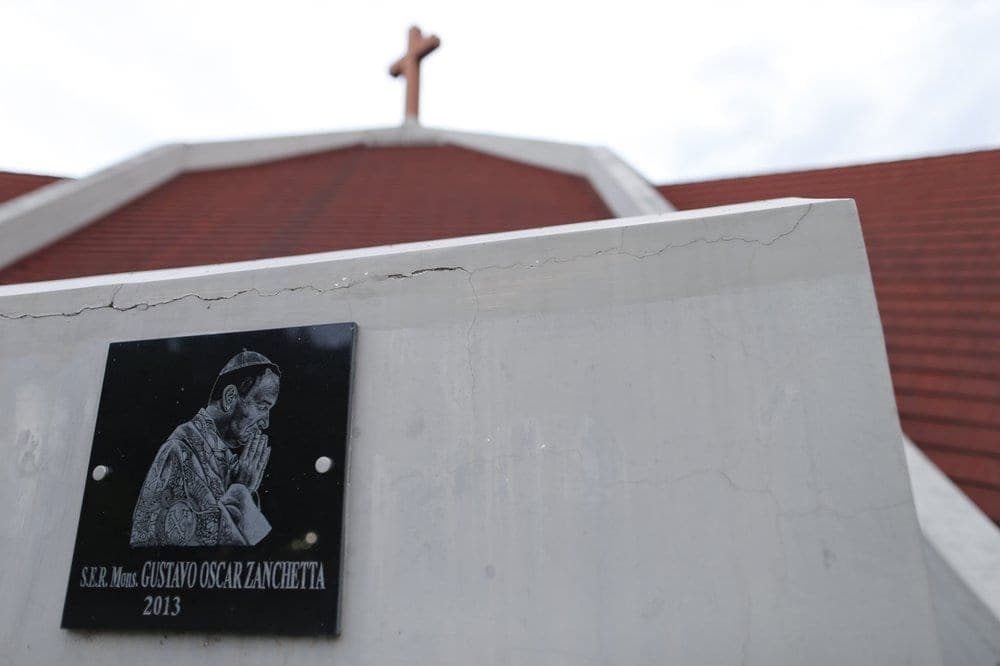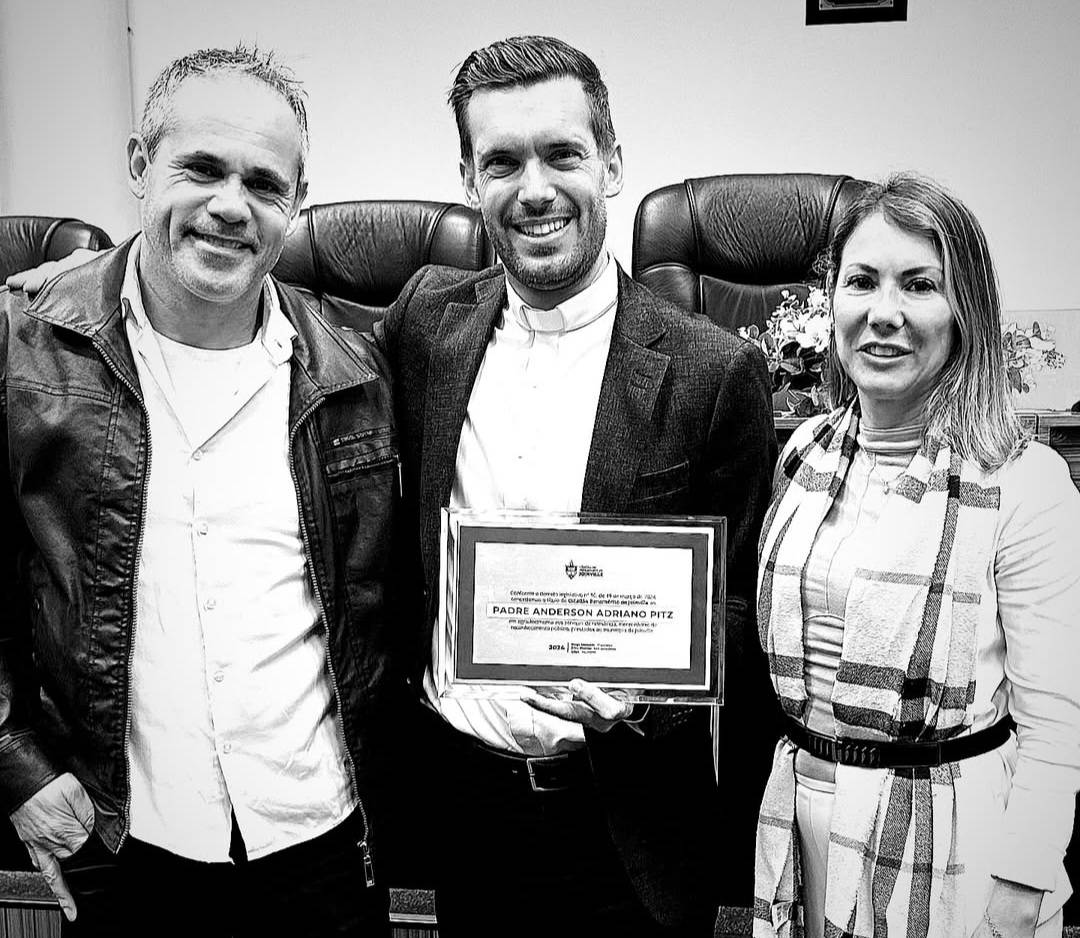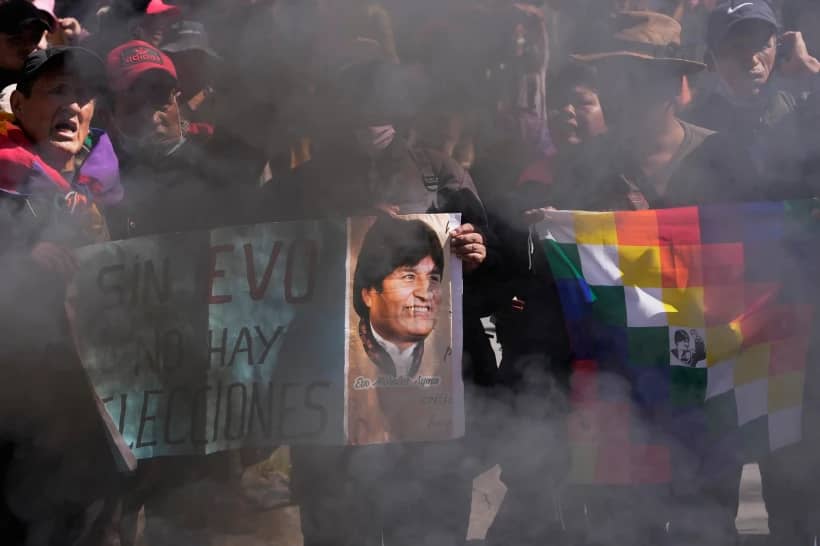An Argentine prosecutor has requested international assistance in the arrest of Bishop Gustavo Zanchetta, the currently suspended “assessor” at the Vatican’s de-facto central bank.
Zanchetta is facing charges of defrauding the state and “aggravated continuous sexual abuse,” with two former seminarians having filed a criminal complaint against him.
According to La Nueva Mañana, prosecutor María Soledad Filtrín Cuezzo made the request after Zanchetta failed to respond to numerous telephone calls and email inquiries she made to the Argentine official after he was allowed to return to Vatican City. In August, he was required to provide contact numbers and email addresses to Argentine authorities so he could be updated on the status of his case.
Zanchetta served as Bishop of Oran from 2013-2017, when he resigned, allegedly for health reasons.
After spending some time in Spain, where he allegedly received psychological treatment, he was appointed by Francis to the Administration of the Patrimony of the Apostolic See (APSA), which functions as the Vatican’s central bank, where he worked in the newly created and ill-defined position of “assessor.”
However, in Argentina, over 20 seminarians complained about alleged sexual and other misconduct by the bishop, including paying visits to the seminary late at night, sitting on the beds of seminarians and giving them alcohol.
He was also accused of defrauding the local government of nearly $250,000, as well as other financial misconduct.
On January 4, the Vatican acknowledged the bishop was under investigation and suspended him from his role.
On August 8, the bishop presented himself in the Argentine court to be formally informed of the charges against him. After giving the court a Vatican-issued certificate signed by Venezuelan Archbishop Edgar Peña Parra, the Substitute at the Vatican’s Secretariat of State, the court allowed him to return to the Vatican.
The certificate didn’t officially summon him back to Rome, but stated that he does in fact, work in APSA and that he lives in the Casa Santa Marta, the hotel within Vatican grounds where Francis has lived since the beginning of his pontificate.
Earlier this month, the offices of the Diocese of Oran were raided in connection to the case, and prosecutors sought to lift the deal allowing Zanchetta to leave the country.
On Nov. 12, Filtrín Cuezzo was notified that the court was constituted to try the bishop on the charge of sexual abuse, aggravated by the fact it was carried out by a minister of religion.
According to the complaint made by the two seminarians, the abuse occurred at the John XXIII seminary in Oran and in a private house in the town of Los Toldos in Salta province.
When the prosecutor requested this summer that Zanchetta face trial, she included the findings of a psychological evaluation conducted on the bishop.
La Nueva Mañana reports that among other aspects, the psychiatric report states that Zanchetta “presents a personality with psychopathic traits (indicators of manipulation, superficial emotions, poor empathetic ability); he does not have psychosis, or another mental disorder that alters the relationship with reality. It is linked through disparate interrelationships, exercising power over others, and can include the conduct deployed and ability to discern socially reproachable acts.”
Francis, who worked closely with Zanchetta when both held positions at the bishops’ conference in Argentina, acknowledged in an interview with Mexican journalist Valentina Alazraki in late May that Zanchetta had been investigated at his request and is currently facing a Vatican trial.
Sources have told Crux that the investigation in Rome is nearly completed, but that the Vatican’s Congregation of the Doctrine of the Faith, which is handling the case, is waiting for the Argentine courts.
Inés San Martín contributed to this report.
Follow Charles Collins on Twitter: @CharlesinRome
Follow Inés San Martín on Twitter: @inesanma
Crux is dedicated to smart, wired and independent reporting on the Vatican and worldwide Catholic Church. That kind of reporting doesn’t come cheap, and we need your support. You can help Crux by giving a small amount monthly, or with a onetime gift. Please remember, Crux is a for-profit organization, so contributions are not tax-deductible.

















